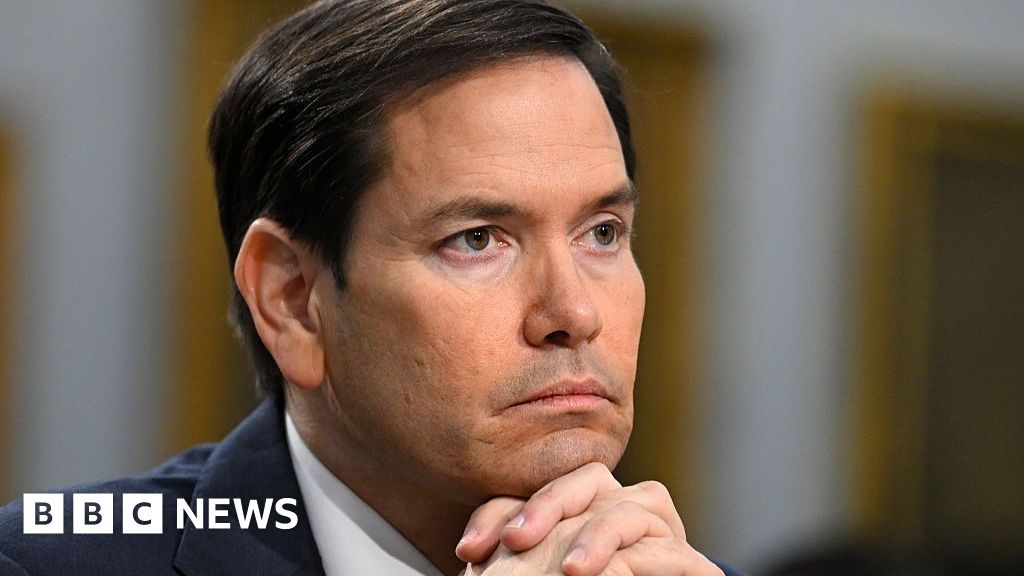The Evolving Landscape of Student Visas in the Trump Era
In a significant shift in immigration policy, the administration of former President Donald Trump announced a halt on scheduling appointments for student visas at U.S. embassies. This decision is geared towards ramping up social media vetting for prospective international students, a move that could transform the entry process for many.
The Memo: A Stop on Scheduling
Secretary of State Marco Rubio issued a memo to U.S. diplomatic posts detailing this pause, which will remain in effect "until further guidance is issued." This unexpected directive implies that embassies across the globe must refrain from filling new visa appointment slots for students, although those who already have appointments will be allowed to proceed with their applications.
The implications of this memo reverberate through the corridors of academic institutions, as many rely on international students who often pay markedly higher tuition fees than their domestic peers.
The Impetus Behind Increased Vetting
This new vetting process is closely tied to the Trump administration’s ongoing battle with elite U.S. colleges, which the President has accused of promoting leftist ideologies. He has alleged that some institutions have fostered an environment where antisemitism flourishes, prompting this proactive approach toward foreign student admissions.
State Department spokesperson Tammy Bruce emphasized the seriousness of this vetting process, stating, "We take very seriously the process of vetting who it is that comes into the country, and we’re going to continue to do that." This commitment suggests that the administration views tight control over student visas as vital to national security.
The Role of Social Media in Vetting
Under the updated guidelines, social media will play an enhanced role in determining which students can enter the United States. The diplomatic cable indicates that each student visa application will now necessitate deeper scrutiny of social media profiles. This could deter potential applicants, particularly those who may be concerned about how their online presence might be interpreted by immigration officials.
Funding and Legal Battles
The ramifications of these changes extend beyond a mere bureaucratic adjustment. The Trump administration has previously frozen hundreds of millions in funding for universities and launched efforts to deport certain international students. Many of these initiatives have faced significant legal challenges, highlighting the contentious nature of the administration’s approach to higher education and immigration.
For instance, the glaring friction between the administration and institutions like Harvard University has sparked widespread debate. Harvard’s enrollment policy for international students was recently scrutinized, with the government revoking its ability to take on international applicants. However, a federal judge intervened, blocking the policy and allowing Harvard to continue its practices—underscoring the ongoing legal tug-of-war.
Broader Impact on Higher Education
The potential consequences of these changes are immense. If the new social media screening protocols are fully implemented, they could drastically affect enrollment figures at American universities, especially those heavily reliant on foreign tuition. Many schools are already bracing for possible declines in international student numbers, which could jeopardize their financial stability.
International students contribute not only to the cultural diversity of campuses but also play a pivotal role in research and funding. With more than a quarter of students at institutions like Harvard hailing from abroad, any measures that hinder these students’ entry could devastate such universities.
Free Speech and Academic Freedom
Additionally, the Trump administration’s actions have raised alarms regarding free speech rights on campus. Many colleges argue that the administration’s tactics interfere with the academic freedom essential for higher education. The government’s allegations that certain institutions facilitate anti-Semitic behavior have heightened tensions, prompting a defensive stance from numerous universities about their commitment to free expression.
The Future of Student Visas
As President Trump’s administration persists in its campaign against specific universities while asserting tighter controls over who enters the country, the future of student visas appears uncertain. The ongoing reshaping of policies can fundamentally alter the landscape of American higher education, thereby impacting countless aspiring students worldwide.
This evolving narrative of immigration, heightened scrutiny, and economic implications is one that educators, students, and policymakers alike will need to navigate in the years to come, as it reflects broader trends in the American discourse on immigration and its significant relationship with education.


